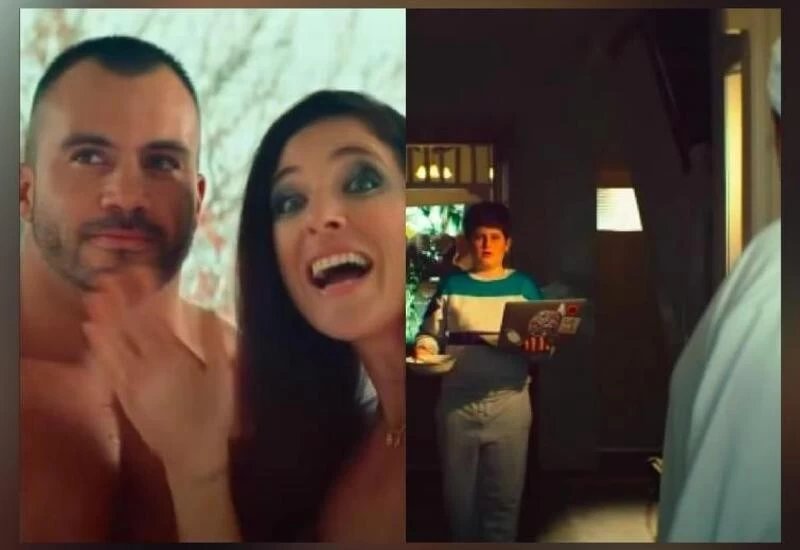Wellington: It’s a scene out of every parent’s – and teenager’s – worst nightmare: two adult-film actors turn up naked at the front door, to tell a stunned mother: “Hiya … your son’s been watching us online.”
The sudden appearance of a smiling but nude Sue and Derek has become something of a sensation as part on an unusual series of TV ads by the New Zealand government about internet safety for young people.
In the latest video for the Keep It Real Online series, actors pretending to be porn stars tell a woman played by comedian Justine Smith that her son has been watching their clips “on his laptop, iPad, Playstation, his phone, your phone, Smart TV projector”, adding that they don’t talk about consent and “just get straight to it”.
“Yeah, and I’d never act like that in real life,” the man, Derek, says, as the woman’s horrified son enters the room holding his laptop.
Sue explains: “We usually perform for adults but your son’s just a kid. He might not know how relationships actually work.”
After walking in on the scene, her mortified son drops his bowl (while still keeping hold of his laptop), and his mother tells herself it’s time to have a chat.
It follows a December 2019 report that revealed young New Zealanders use the internet as their first and primary tool to learn about sex – and a third of the most popular pornography clips viewed in the country depicted non-consensual activities.
The series – which also include videos addressing cyberbullying, grooming by pedophiles, and the ease of children’s access to violent content – encourage parents to “stay cool, calm and collected” when starting difficult conversations with their children about online issues, according to the creative agency responsible.
“Parents should feel confident when dealing with these issues… at the end of the day, they’re the best person to keep their child safe,” Hilary Ngan Kee, a spokesperson for the advertising agency Motion Sickness, said in a statement. “You don’t need to have all the answers, but supporting your child and giving that ‘adult’ guidance as they navigate the choppy waters of the online world will really make a difference.”
It’s not the first time New Zealand’s government has commissioned advertising using humour to send a serious message: among the most popular are drink-driving advertisements in which a young man imagines a conversation with a “ghost” friend after a car accident. The public service announcement spawned the widely quoted meme, “You know I can’t grab your ghost chips.”
Another saw the film director Taika Waititi satirically urging New Zealanders to support a new charitable cause: racism.
“Kiwi humour sort of comes from late-night chats round a table, either in the kitchen, pub, or garage,” said comedian James Nokise. “It’s why we can come across to foreigners as either dry, too casual, or occasionally harsh … we’re small enough that we’ve managed to take the kind of intimate family humour and apply it to the whole country.”
New Zealanders “love downplaying something to make it irreverent,” he added.


